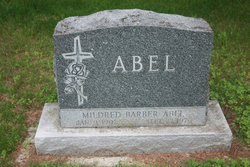When the three women, Miss Barber, Helen Brooks of Wautoma and Helen Thompson of Park Falls, first arrived in Madison to claim their seats in the Legislature, they caused great consternation because the chief clerk of the Assembly did not know how to address them.
Although she served for only one term, Miss Barber was a skillful politician and sponsored several important bills, the first of which was a proposal that the eugenics law be broadened to include women as well as men. Although it did not pass under her sponsorship, it did pass in the next session. Another of her proposals was a bill to remove criminal jurisdiction from the justices of the peace to the municipal courts. Still another example of important bills at that time was the issuance of iodine tablets to school children. At the time, the state health department fought the bill, but a few years later sponsored a similar bill themselves.
She and her father were appointed by Governor John Blaine to the visiting committee of Penal Institutions. They were part of a 6-member committee who were to visit all the penal institutions in the state and report their findings. Years later, she always contended that that appointment was the most interesting role she played as a legislator. She was also the first woman in the state to attend a platform convention, and was elected secretary of the 1924 Republican Platform Convention. At the end of her one term, she ran without campaigning and predictably lost. She was a Progressive Republican like her father, and an admirer of Robert LaFollette, serving as a member of the honor guard at his funeral. When asked her opinion of LaFollette, she said, "Had Bob LaFollette become president of the United States, our history today undoubtedly would have been much better."
Miss Barber taught school for a year then married Otto Abel on October 31, 1928. Together they had one son and Mr. Abel had a daughter from a first marriage. While she never again held a public office, she focused on being a homemaker and she continued with her interest in public affairs.
Mildred Barber Abel died on September 29, 1976. She is buried in Pine Grove Cemetery in Wausau, WI.
When the three women, Miss Barber, Helen Brooks of Wautoma and Helen Thompson of Park Falls, first arrived in Madison to claim their seats in the Legislature, they caused great consternation because the chief clerk of the Assembly did not know how to address them.
Although she served for only one term, Miss Barber was a skillful politician and sponsored several important bills, the first of which was a proposal that the eugenics law be broadened to include women as well as men. Although it did not pass under her sponsorship, it did pass in the next session. Another of her proposals was a bill to remove criminal jurisdiction from the justices of the peace to the municipal courts. Still another example of important bills at that time was the issuance of iodine tablets to school children. At the time, the state health department fought the bill, but a few years later sponsored a similar bill themselves.
She and her father were appointed by Governor John Blaine to the visiting committee of Penal Institutions. They were part of a 6-member committee who were to visit all the penal institutions in the state and report their findings. Years later, she always contended that that appointment was the most interesting role she played as a legislator. She was also the first woman in the state to attend a platform convention, and was elected secretary of the 1924 Republican Platform Convention. At the end of her one term, she ran without campaigning and predictably lost. She was a Progressive Republican like her father, and an admirer of Robert LaFollette, serving as a member of the honor guard at his funeral. When asked her opinion of LaFollette, she said, "Had Bob LaFollette become president of the United States, our history today undoubtedly would have been much better."
Miss Barber taught school for a year then married Otto Abel on October 31, 1928. Together they had one son and Mr. Abel had a daughter from a first marriage. While she never again held a public office, she focused on being a homemaker and she continued with her interest in public affairs.
Mildred Barber Abel died on September 29, 1976. She is buried in Pine Grove Cemetery in Wausau, WI.
Family Members
Sponsored by Ancestry
Advertisement
Advertisement






